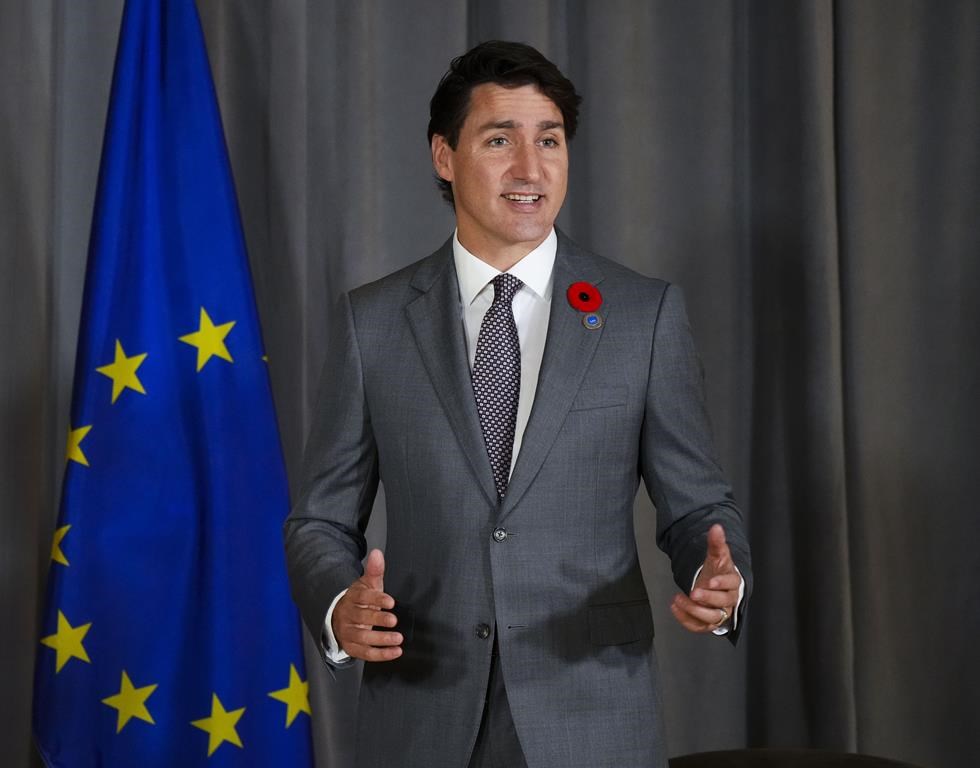When Justin Trudeau became Canada’s 23rd prime minister in 2015, he received a significant amount of international praise and media coverage.
The New York Times Magazine paid homage to his late father and declared it was “Trudeau’s Canada, Again.” CNN suggested “Justin Trudeau, ‘the anti-Trump,’ shows Canada’s progressive, diverse face.” At the United Nations, then-Bulgarian President Rosen Plevneliev said, “I love him. I admire him. He is a wonderful young leader of this planet.” An article about Trudeau in Rolling Stone included this header, “Is he the free world’s best hope?”
These assessments all turned out to be complete nonsense.
Trudeau has been a weak and ineffective leader. He’s lost when it comes to the fine art of public relations and strategic communications. He has a vapid approach to everything from politics to daily life. He understands almost nothing about economics and financial management. He’s turned off more than two-thirds of all Canadian voters in the past two elections, and one truly wonders how much faith and confidence the remaining one-third has in him.
Still, a gushing profile in Vogue’s December 2015 edition, where Trudeau was depicted as the “New Young Face of Canadian Politics” who “celebrates openness and transparency” actually contained a few small kernels of truth. In particular, contributing editor John Power’s analysis in the last two paragraphs was a harbinger of things to come,
During his campaign, Trudeau pledged to invest in schools, health care, and infrastructure, even if that meant running deficits, and—in a profound reversal of Conservative policy—to make Canada a big player in environmental causes, especially climate change. This has already proved a tricky balancing act. Even as he expressed disappointment that President Obama rejected the Keystone XL pipeline (which would have carried oil from the Alberta tar sands), Trudeau was setting up a conference with provincial and territorial leaders to create national emission-reduction standards.
Trudeau insists that the important thing in the modern world is to be optimistic about change, which is a fact of life, and not succumb to negativity. “There’s a sense that maybe we’ve reached the end of progress, that maybe it’s the new normal that the quality of life is going to go down for the next generation. Well, I refuse to accept that,” he says, fixing me with his deep gaze. “And I refuse to allow that to happen.”
This, in a nutshell, explains Trudeau’s leadership. The only thing this PM has left at his disposal is the environment. That’s been his pet project since day one, and he can’t (and won’t) stop talking about it. Since his public image has been badly shattered and properly ridiculed the past six years, his “sunny ways” and eternal optimism now more closely resemble never-ending flights of fantasy.
Trudeau’s statement about carbon pricing at the COP26 climate conference in Glasgow, Scotland emphatically proves this.
“We recognize right now that only about 20 per cent of global emissions are covered by a price on pollution,” he said in a speech. “We should be ambitious and say as of right here today that we want to triple that to 60 per cent of global emissions should be covered by a price on pollution in 2030. What a strong carbon price does, when it’s properly designed, is actually drive those price signals to the private sector, transform the economy and support citizens in encouraging them to make better choices.”
Trudeau didn’t stop there. “We know there are many different approaches that every country is going to have to take to reduce emissions, to decarbonize their economy, to get to net zero (emissions by 2050),” he later said at a news conference. “Carbon pricing is one of the most effective and cheapest ways to get there. It’s an extremely powerful tool that incentivizes businesses and consumers to make smarter choices.”
Trudeau’s assessment of the benefits of carbon pricing are complete fantasy.
Carbon pricing, as you may have guessed, is a less controversial way of suggesting the implementation of a carbon tax. Briefly, it’s not a free market-oriented strategy, but rather a regressive Pigouvian tax which affects overall market outcomes through social costs rather than pure private costs. Governments can then use carbon pricing as a means of regular interference with the ebbs and flows of the free market. It’s nothing more than a subtle shift of taxes from one source to the other.
When have you ever heard, read or experienced a new tax proposal or pricing method that can be, to use Trudeau’s description, “cheap and effective?” Never, because they don’t exist! Additional tax policies like a global price on carbon can only truly benefit one entity, the state. Individuals and businesses face the prospect of steady increases in everything from the gas pumps to income tax rates.
Most world leaders recognize the folly of Trudeau’s position on carbon pricing. U.S. President Joe Biden certainly hasn’t suggested it as part of his plan at COP26. The left-leaning Democrat has expressed an interest in tackling climate change, but he’s not foolish enough to back a new carbon tax scheme that would hurt Americans in their wallets. It would be political suicide for his party and movement, and cause permanent economic damage to his country.
That’s why the international community pays very little attention to Trudeau. In six short years, they’ve learned he has nothing to offer his own country and the world. He may want to be an environmental saviour at COP26, but they realize he’s nothing more than comic relief. Unfortunately, Canadians won’t be able to get him off the domestic and international stage for a while longer.
Michael Taube, a long-time newspaper columnist and political commentator, was a speechwriter for former Canadian prime minister Stephen Harper.






